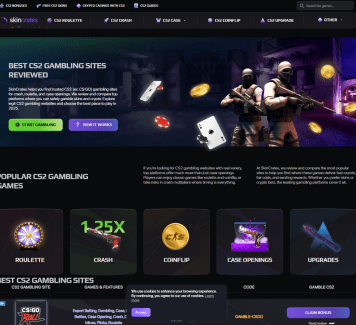
Building a factory today is no longer necessary to sell goods and meet consumer demands. One can operate based on the private label manufacturing business model. The essence of this model lies in the company outsourcing the production of goods to a third-party manufacturer who produces them using their equipment and then packages the products under the company’s brand name. Almost every retailer has a private label because it is prestigious and profitable. The company obtains the desired product without incurring manufacturing costs.
What is private label manufacturing?
In simple terms, private-label manufacturing is when a company creates a private-label product using someone else’s production facilities. Many industries practice this model. For example, let’s say you want to produce sports supplements but don’t have the finances to open a production plant. In that case, you enter into a contract with a manufacturing company that has been involved in this for a long time, and they package the finished product under your brand.
Since ancient times, labels have been used to identify the manufacturers of goods. Merchants would designate their products with a specific sign or symbol to demonstrate their authenticity. The 18th and 19th centuries were characterized by the growth of production and the market, which necessitated the development of a system to identify different sellers. During this period, the first logos and private labels began to emerge. Advertising as a means of brand promotion appeared in the 20th century, and many well-known brands today trace their origins back to this time.
The main advantage of private label manufacturing is the absence of the need for significant investments. Building a factory, acquiring equipment, and establishing infrastructure is more expensive than outsourcing production to another company. Additionally, private label manufacturing eliminates the need to search for employees, reducing costs and expenses. The drawback of this working model is that the company cannot fully control the manufacturing process and becomes dependent on the manufacturing company. To turn this into an advantage, visiting the production facility before starting the collaboration is essential to ensure the claimed quality and capabilities.
In addition to private label manufacturing, there are other models, such as OEM (Original Equipment Manufacturer), ODM (Original Design Manufacturer), and OBM (Own Brand Manufacturer). In the OEM model, a company manufactures electronic components other companies use in their devices. In the ODM model, the manufacturer handles the entire project development and manufacturing process, providing the client with several options for the final result. In the OBM model, the manufacturer develops, produces, and promotes private-label products. They are the complete brand owner, controlling everything from manufacturing to marketing and sales.
Selecting a niche and product
The statistics of the private label manufacturing business model indicate growth, thus holding prospects for the future. To start your own business, it is necessary to initially engage in market research and understand the product that consumers are anticipating. Amid immense competition, a clear business plan is essential to create a high-quality and dominant product. Therefore, opt for options that fill a specific gap in the market, such as bioactive supplements. Explore products that people consider subpar and, with the help of private-label supplement manufacturing, make them significantly better.
The search for a good manufacturer should not be limited to a single resource. It can be found in online directories, forums, as well as through local connections and trusted recommendations. After narrowing down your options, call each manufacturer to discuss all relevant questions. Request samples to ensure production quality and consider visiting the factory in person. We advise starting with a small order from the manufacturing company and gradually increasing the production volumes.
Developing your brand
The corporate identity is called that way because it should reflect the uniqueness of your brand. It needs to be memorable and, at the same time, distinguishable from competitors. However, it is important not to forget the company’s values and the product. The development of the corporate identity should be approached professionally, taking into account the client’s preferences to attract them first with the visual appearance and then with the quality of the product. Equally important will be the selection of fonts and color schemes, which play a role in the psychology of choice.
Effective packaging attracts the buyer, establishes a connection with them, and conveys the values of the company and the product. Study the packaging of your competitors’ products and understand what values it reflects, what is wrong with them, and what immediately grabs attention. Based on this information and with your packaging concept in mind, consult a contractor. Remember that the packaging design should be attention-grabbing, conveying the brand’s values, and be easy to read. Use high-quality materials made from environmentally friendly raw materials and good finishing, lamination, and embossing.
Remember the legal aspects of production, i.e., protecting the brand with private labels and patents. A private label is a logo, symbol, design, or phrase identifying a specific brand. Registering a private label protects the brand from damage other companies using similar marks may cause. If your product is unique and innovative, it should be patented. A patent gives you the right to use your brand for a certain period and protects it from those who would want to promote it as their own.
Setting up your business
To be present in the market, it is necessary to register a company and obtain all the necessary permits. Determine the organizational form of your business, submit the corresponding documents, and obtain all the required licenses to start operations: licenses for the sale of specific goods, quality certificates, and permission to use technologies.
Without a website or social media presence, it is impossible to promote your products. Create an attractive and informative website that reflects your brand’s value. The same applies to social networks — create pages on Instagram and Facebook, and add your products to marketplaces. Develop a content plan and publish useful content. Social media platforms allow for better interaction with customers.
To distribute your products, it is necessary to find potential distributors. Study the market and consult professional databases that will help you find retail sellers. Contact the selected options and, discuss cooperation terms, logistics, pricing, and establish a contract. Ensure that all contract conditions are discussed and understood and the rights and obligations of both parties are stated in the contract.
Production management and quality control
Effectively managing private label supplement manufacturing and ensuring the smooth coordination of manufacturing processes will facilitate high product quality. Familiarise yourself with each manufacturing stage and maintain constant communication with the manufacturer. If you have any preferences, voice them before finalizing the contract with the contractor. Determine the key parameters of the products in advance: appearance, size, color, safety, and quality. Ensure that the chosen production facility complies with market rules and requirements. To verify whether the manufacturing company adheres to safety measures and maintains acceptable working conditions, regularly conduct audits and inspections at the facility.
Conclusion
Private-label manufacturing is an excellent strategy for companies. It is an economically advantageous business model that allows for producing high-quality products at lower costs. In this model, the client can collaborate with multiple manufacturers worldwide, choosing the best terms for cooperation and offering a diverse range of desired goods.













